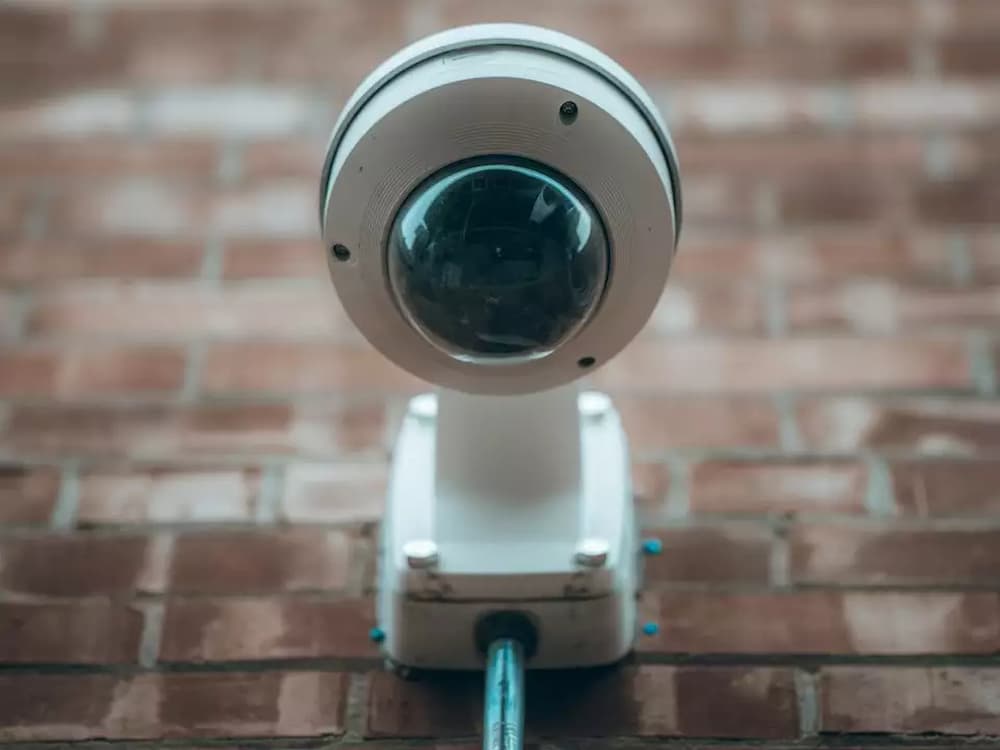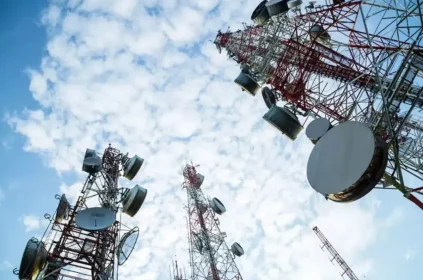Close-Circuit Television, CCTV, footage has exposed how a nine-year-oil girl ignited the fire that burnt Ebeano Supermarket in Abuja.
The fire burnt through Saturday night on 17th July to Sunday morning, razing the Ebeano Supermarket to ashes.
The nine-year-old arsonist had strolled to the gas section of the supermarket to ignite the fire using a lighter.
The CCTV footage clearly showed the girl’s act was pre-meditated.
The footage showed how the girl furtively ignited the fire and waited for it to burn before vanishing.
Although the identity of the arsonist is shocking, the importance of CCTV in exposing the crime cannot be overemphasized.
What is CCTV:
CCTV means Close-Circuit Television. It is also known as video surveillance.
It is the use of video cameras to monitor the images of individuals or groups of individuals or things.
The signals from the cameras are then transmitted to specific monitors for viewing.
CCTV cameras monitor things or people in real time or through access to stored content.
Some CCTVs also make use of features such as motion-detection, online viewing and storage and email alerts.
It then transmits the signals to a DVR or NVR, which is then connected to limited set of monitors.
DVR means Digital Video Recorders while NVR means Network Video Recorders.
CCTVs use either point to point wires or wireless links to the monitors.
Uses of CCTV:
Governments, organisations or even private individuals use CCTV for security surveillance of public areas and homes.
For example, people install CCTV cameras to monitor Supermarkets, car parks, street lights and banks.
Also, private individuals use CCTVS for surveillance at homes, housing estates and casinos; airports, shopping Malls or Stores.
People use CCTVs to also monitor town centres, government facilities, schools and for invigilating examinations like JAMB.
Traffic flows, traffic densities, natural disasters like flood, earthquakes, building collapses can be monitored with CCTVs.
Also, people use CCTV technology to monitor public areas to detect incidents such as the inferno involving the little girl and Ebeano supermarket.
Governments and managements of establishments use the CCTV system to co-ordinate police responses and record events for use as evidence.
The police and other law enforcement agencies, including the courts, use footages from CCTV cameras for investigations.
Recently, the Special Offences Court of the Lagos State High Court admitted a CCTV footage against Nollywood actor, Olanrewaju Omiyinka popularly known as Baba Ijesa.
Baba Ijesa was caught in a CCTV footage submitted by Damilola Adekoya, also known as Comedian Princess, sexually molesting a minor.
How CCTV deters crime and help in identifying crime suspects:
Reports have shown how people have been able to detect crime suspects through CCTV footages.
According to research, people are very accurate in identifying familiar faces seen in CCTV footages. The researchers have argued that people can recognise familiar faces even from poor quality CCTV footages.
Circulating footages of crime suspects often leads to successful and accurate recognition of the suspects by the public.
So, circulating to the public even poor quality CCTV images of people may lead to successful identifications.
Example is the case where a work colleagued identified a London Nail Bomber from a CCTV footage.
ALSO READ: Sanwo-Olu Clears Air On #LekkiTollMassacre, Says Nobody Ordered Removal Of CCTV Cameras
His colleague identified the bomber from a CCTV image of him in a London newspaper.
In Nigeria, the Ebeano Supermarket case is another example. CCTV footage exposed the little girl arsonist who burnt the supermarket.
Also, CCTV footage exposed Nollywood actor, Baba Ijesa who sexually molested a minor.
Nigerian Regulatory requirements for CCTV:
The Nigerian Government is seeking to enact a law that mandates all companies and organizations to install CCTV cameras in their premises.
Awaji-Inombek Abiante sponsored the Bill.
It was titled: “A Bill for an Act to Make Provision for the Integration of Private Closed Circuit Television Infrastructure into the National security Network in Nigeria.”
The bill stipulates penalties for organisations who fail to install CCTV cameras in their premises.
The penalties include monetary fines or jail terms for offenders.
It states that “Any company or organization in Nigeria that refuses, out of neglect, to install CCTV camera within and outside its premises is liable to a fine of at least N500,000 or an imprisonment of six months or both. Continual refusal to install CCTV camera shall attract a fine of at least N1 million or a year in imprisonment or both.”
Nigeria and CCTV projects:
The Nigerian government has, in years, invested heavily in CCTV projects that have yielded little or no results.
First was the late president Umaru Musa Yar’Adua’s administration in 2008.
YarÁdua had awarded the CCTV contract to a Chinese company known as the ZTE Corporation under the National Public Security Communications System.
The government engaged ZTE to install 2,000 CCTV cameras in Lagos and Abuja on a cost of $600m credit facility obtained from the Chinese EXIMBANK.
ZTE promised to complete the CCTV installation in May 2011.
However, ZTE allegedly installed only 1000 cameras and only 40 functioned.
Nigerian Government mulls using CCTV cameras and Drones for security:
Nine years later, specifically in July 2020, the Nigerian government, again, remembered the CCTV project.
This time, the government plans to install cameras on major highways in the country.
The government also said it would use drones to support the CCTV cameras to tackle incessant security in the country.
Implication for you the reader:
The use of CCTV has become common place in Nigeria as many establishments use CCTVs.
CCTVs can save you a lot by helping you to detect crimes and save yourself troubles and huge money.
Remember that you need to install CCTV cameras if you own a business premise in Nigeria.
This is because, if the bill on compulsory installation of CCTVs becomes law, then defaulters stand to face penalties.
Also, you can use footages from CCTV cameras as evidence in cases involving the courts or during investigations.
Although CCTVs shows the increasing advancements in technology, you must not abuse its usage.
This is because, advancements in technology are synonymous with increased invasion on privacy rights of individuals too.
Therefore, note also that CCTV surveillance is classified as personal data under the Nigerian Data Protection Regulation (NDPR).
So, supermarkets, banks, multinationals, Professional service firms, Consultancies, Restaurants, Gated Communities/Estates, Recreational Parks, etc must demonstrate responsibility when collecting and processing CCTV surveillance data.
Ultimately, CCTVs will save you a lot. Imagine the discovery from the CCTV footage on the Ebeano Supermarket fire. That is the power of the CCTV.



















 and then
and then